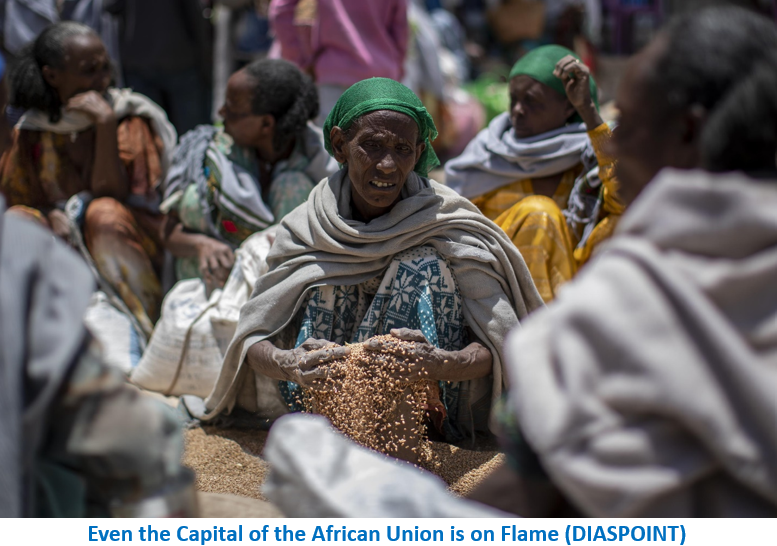Ethiopia and Eritrea: Is a new war looming?
Post By Diaspoint | November 30, 2023

Ethiopia and Eritrea made peace in 2018, formally ending their border conflict. But control of the Assab port, which serves both countries, has sparked new tensions and led to fears of a fresh dispute.
When Ethiopian Prime Minister Abiy Ahmed came into office in April 2018, he worked to secure a peace deal with former foe and neighbor, Eritrea.
Abiy and Eritrean President Isaias Afwerki signed a historic peace deal later the same year to end decades of fighting.
This earned Abiy the Noble Peace Prize and the admiration of the world — but now there are emerging fears that all the gains made five years ago could soon be lost.
At the center of these concerns is Ethiopia’s quest to have access to a port on the Red Sea, specifically the port of Assab. It’s located in Eritrea, which was part of Ethiopia until it gained independence more than 30 years ago.
Since 1998, Ethiopia’s access to the port of Assab has been truncated due to a 20-year border war between the neighboring nations that killed tens of thousands of people.
The conflict forced Ethiopia to channel its goods and other port-related trades through neighboring country of Djibouti, which borders both Ethiopia and Eritrea.
“When they [Eritreans] declared their independence, they were boasting about their ports, that they [will] use them [for developments], they were singing for their ports. [A lot has] been said about the significance of the ports,” Ato Yesuf Yasin, a former Ethiopian diplomat, told DW.
However, Yasin said that since then, Eritrea’s ports haven’t served any country in the Horn of Africa region.
“But now the main issue is that neither Ethiopia nor Eritrea, nor the people of Afar who live in and around the coastal areas, benefit from the ports,” he added, referring to the Ethiopian region that borders Tigray and Eritrea.
Abiy makes case for access to port
Prime Minister Abiy said Ethiopia deserves a port of its own, which shouldn’t come at a huge cost, and has signaled his country’s readiness to regain access to the Assab port.
“The Red Sea and the Nile will determine Ethiopia. They are interlinked with Ethiopia and will be the fundamentals that will either bring in Ethiopia’s development or bring about its demise,” Abiy Ahmed said last month during a televised speech
to Ethiopian lawmakers.
Read More from original source
